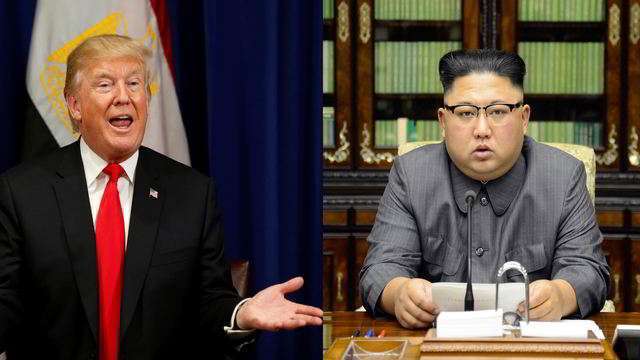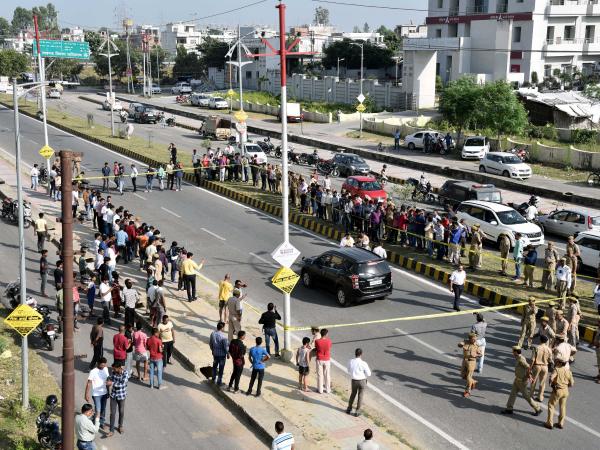Russia urged ‘hot heads’ to calm down on Friday as the United States admitted it felt ‘challenged’ by North Korea’s warning that it could test a hydrogen bomb over the Pacific and President Donald Trump and Kim Jong Un traded more insults.
Trump called the North Korean leader a ‘madman’ on Friday, a day after Kim dubbed him a ‘mentally deranged US dotard’ who would face the ‘highest level of hard-line countermeasure in history’ in retaliation for Trump saying the US would ‘totally destroy” North Korea if it threatened the US or its allies.
“We have to calm down the hot heads,” Russian Foreign Minister Sergei Lavrov told reporters at the United Nations, where world leaders gathered this week for the annual UN General Assembly. “We continue to strive for the reasonable and not the emotional approach…of the kindergarten fight between children.”
US Secretary of State Rex Tillerson expressed hope in an interview with ABC that sanctions and “voices from every corner of the world” could lead North Korea back to talks, but admitted intensifying rhetoric had left Washington “quite challenged.”
North Korea’s Foreign Minister Ri Yong Ho, warned on Thursday that Kim could consider a hydrogen bomb test of an unprecedented scale over the Pacific. Ri, who is due to speak to the United Nations on Saturday, added that he did not know Kim’s exact thoughts.
In response, Tillerson said US diplomatic efforts would continue but all military options were still on the table.
North Korea’s six nuclear tests to date have all been underground, and experts say an atmospheric test, which would be the first since one by China in 1980, would be proof of the success of its weapons program.
A senior US official, speaking on condition of anonymity, said Washington was taking Kim’s threat seriously and added that any atmospheric test would be a “game-changer.”
But he said there were questions about North Korea’s technical capabilities and Washington did not give “too much credence” to Pyongyang taking such action. “There’s a certain amount of bluster that’s taken for granted when you’re dealing with North Korea,” the official told Reuters.












